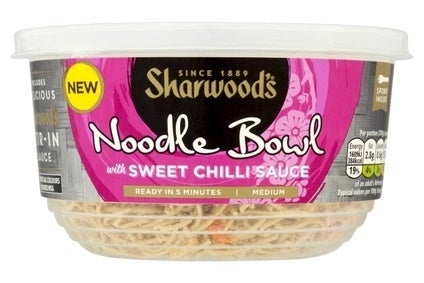
- EBITDA down 7.2%
- Trading profit fell 6.4% – Premier says "in line with expectations"
- Sales fell 4.6% to GBP504.4m reflective of "challenging trading environment"
Premier Foods plc has reported a fall in annual profits amid pressure on sales at the UK food group.
The Sharwood's owner has changed its financial year and, for the 15 months ended 4 April, the company saw trading profit hit GBP150.2m (US$208.7m), which it said was "in line with expectations".

Discover B2B Marketing That Performs
Combine business intelligence and editorial excellence to reach engaged professionals across 36 leading media platforms.
Pro-forma trading profit, which was for the 52 weeks to 4 April and excluded the results of previously-completed business disposals and joint ventures, fell 6.4% to GBP131m (US$204.7m). EBITDA was also 7.2% lower at GBP144.9m.
Sales fell 4.6% to GBP504.4m. During the fourth quarter, branded revenue was flat against last year. The company said lower sales in its power brands and support brands were reflective of the "challenging trading environment" in the UK.
Looking to fiscal 2016, Premier CEO Gavin Darby said the environment was likely to remain "challenging". However, Shore Capital analysts were upbeat on the group's improved ability to navigate choppy waters.
On a reported basis, Premier made a net loss of GBP92.7m for the 15 months to 4 April, compared to a loss of GBP46.7m a year earlier. The company booked higher net interest on pension and admin costs, while it also reported an impairment charge of GBP83.9m, largely due to an assessment of the carrying value of its sweet treats business as a stand-alone entity. Last year, Premierreorganised its set-up and created three divisions – grocery, sweet treats and international.

US Tariffs are shifting - will you react or anticipate?
Don’t let policy changes catch you off guard. Stay proactive with real-time data and expert analysis.
By GlobalData"Premier Foods is in much better shape to protect and build trading profit, in our view, and so to progressively de-leverage," Shore Capital analyst Clive Black wrote in an investor note. "Looking to the future, whilst somewhat battered by the experiences of FY2015, we are cautiously optimistic that Premier can benefit can from favourable comparatives, improving market volumes, a benign cost of goods environment and the ongoing investment in capacity (e.g. cake snack packs) and more and better marketing."





